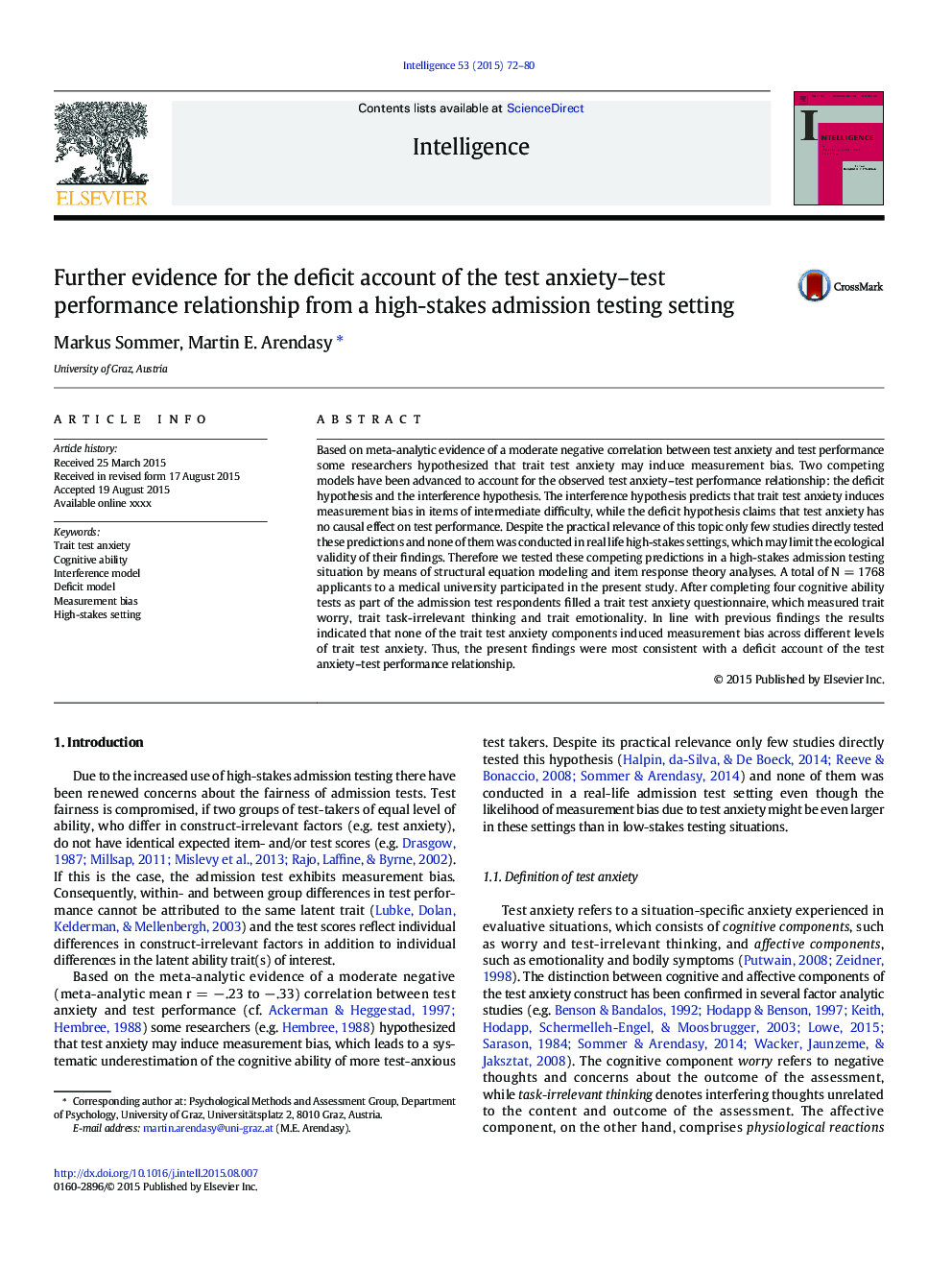| Article ID | Journal | Published Year | Pages | File Type |
|---|---|---|---|---|
| 7293579 | Intelligence | 2015 | 9 Pages |
Abstract
Based on meta-analytic evidence of a moderate negative correlation between test anxiety and test performance some researchers hypothesized that trait test anxiety may induce measurement bias. Two competing models have been advanced to account for the observed test anxiety-test performance relationship: the deficit hypothesis and the interference hypothesis. The interference hypothesis predicts that trait test anxiety induces measurement bias in items of intermediate difficulty, while the deficit hypothesis claims that test anxiety has no causal effect on test performance. Despite the practical relevance of this topic only few studies directly tested these predictions and none of them was conducted in real life high-stakes settings, which may limit the ecological validity of their findings. Therefore we tested these competing predictions in a high-stakes admission testing situation by means of structural equation modeling and item response theory analyses. A total of NÂ =Â 1768 applicants to a medical university participated in the present study. After completing four cognitive ability tests as part of the admission test respondents filled a trait test anxiety questionnaire, which measured trait worry, trait task-irrelevant thinking and trait emotionality. In line with previous findings the results indicated that none of the trait test anxiety components induced measurement bias across different levels of trait test anxiety. Thus, the present findings were most consistent with a deficit account of the test anxiety-test performance relationship.
Related Topics
Social Sciences and Humanities
Psychology
Experimental and Cognitive Psychology
Authors
Markus Sommer, Martin E. Arendasy,
